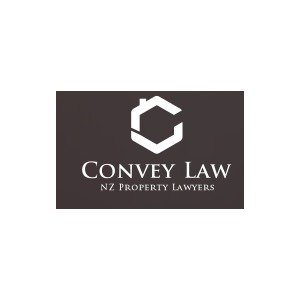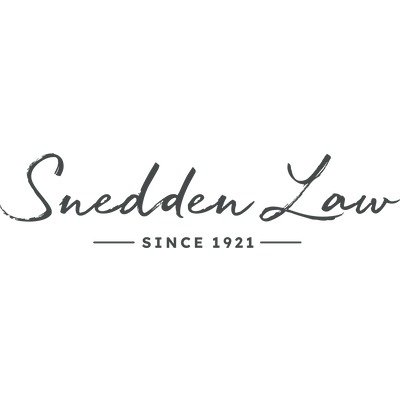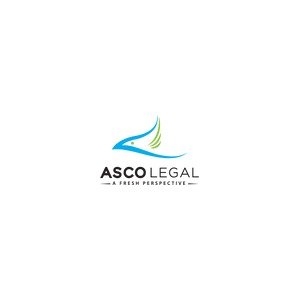Best Toxic Mold Lawyers in Auckland
Share your needs with us, get contacted by law firms.
Free. Takes 2 min.
List of the best lawyers in Auckland, New Zealand
About Toxic Mold Law in Auckland, New Zealand
Toxic mold, also known as black mold or stachybotrys chartarum, can pose serious health risks to individuals living or working in contaminated buildings. In Auckland, New Zealand, laws are in place to regulate the presence of toxic mold and protect the rights of those affected by it. Legal help may be necessary in cases where landlord-tenant disputes arise, property damage occurs, or individuals suffer health issues due to exposure to toxic mold.
Why You May Need a Lawyer
If you discover toxic mold in your rental property and your landlord fails to address the issue promptly, seeking legal assistance is crucial. A lawyer can help you understand your rights as a tenant and navigate through the dispute resolution process. Additionally, if you have suffered health issues due to exposure to toxic mold in a building, a lawyer can assist you in filing a personal injury claim and seeking compensation for medical expenses and other damages.
Local Laws Overview
In Auckland, New Zealand, the Residential Tenancies Act 1986 sets out the rights and responsibilities of both landlords and tenants regarding the presence of toxic mold in rental properties. The Health and Safety at Work Act 2015 also requires employers to provide a safe working environment for their employees, which includes addressing issues related to toxic mold in the workplace. It is important to consult with a lawyer who is familiar with these local laws and can provide guidance on how to protect your rights in cases involving toxic mold.
Frequently Asked Questions
1. What are the health risks associated with exposure to toxic mold?
Exposure to toxic mold can cause a range of health issues, including respiratory problems, allergic reactions, skin irritation, and flu-like symptoms. In severe cases, prolonged exposure to toxic mold can lead to more serious health conditions.
2. How can I determine if my property is contaminated with toxic mold?
If you suspect that your property is contaminated with toxic mold, it is advisable to hire a professional mold inspector to conduct a thorough assessment. They will take samples for testing and provide a report detailing the extent of the contamination.
3. What are my rights as a tenant if I discover toxic mold in my rental property?
As a tenant, you have the right to a safe and habitable living environment. If you discover toxic mold in your rental property, you should notify your landlord immediately and request that they address the issue in a timely manner. If your landlord fails to take action, you may need to seek legal assistance to protect your rights.
4. Can I sue my landlord for damages if I get sick from exposure to toxic mold?
If you have suffered health issues due to exposure to toxic mold in a rental property, you may be able to sue your landlord for damages. A lawyer can help you assess the strength of your case and guide you through the process of filing a personal injury claim.
5. What are the legal responsibilities of employers regarding toxic mold in the workplace?
Employers are required to provide a safe working environment for their employees, which includes addressing issues related to toxic mold in the workplace. If you believe that your employer is not taking adequate measures to address a mold problem, you may need to seek legal advice to protect your rights.
6. Are landlords required to disclose past issues with toxic mold to potential tenants?
Landlords in Auckland, New Zealand are not required to disclose past issues with toxic mold to potential tenants. However, they are obligated to ensure that rental properties are safe and habitable, which includes addressing any known mold problems before renting out the property.
7. How long does it typically take to resolve a legal case involving toxic mold?
The time it takes to resolve a legal case involving toxic mold can vary depending on the complexity of the issue and the willingness of the parties involved to reach a resolution. It is advisable to consult with a lawyer who can give you an estimate of the timeline for your specific case.
8. Can I be evicted for reporting toxic mold in my rental property?
Under the Residential Tenancies Act 1986, landlords are prohibited from evicting tenants in retaliation for reporting issues such as toxic mold in a rental property. If you believe that you are facing eviction for this reason, you should seek legal assistance to protect your rights as a tenant.
9. Can I handle a legal case involving toxic mold on my own?
While it is possible to handle a legal case involving toxic mold on your own, it is advisable to seek the guidance of a lawyer who specializes in this area of law. A lawyer can help you navigate the legal process, protect your rights, and increase the chances of a successful outcome in your case.
10. How much does it cost to hire a lawyer for a toxic mold case?
The cost of hiring a lawyer for a toxic mold case can vary depending on the complexity of the issue, the experience of the lawyer, and the specific details of your case. Some lawyers may offer free initial consultations or work on a contingency fee basis, where they only get paid if you win your case.
Additional Resources
If you require legal assistance in a toxic mold case in Auckland, New Zealand, you may consider reaching out to the New Zealand Law Society for referrals to reputable lawyers who specialize in this area of law. Additionally, the Ministry of Business, Innovation and Employment (MBIE) provides resources and information on landlord-tenant rights and responsibilities related to toxic mold.
Next Steps
If you believe that you have a legal case involving toxic mold in Auckland, New Zealand, it is advisable to consult with a lawyer who specializes in this area of law. A lawyer can help you understand your rights, assess the strength of your case, and guide you through the legal process to seek a resolution that protects your interests.
Lawzana helps you find the best lawyers and law firms in Auckland through a curated and pre-screened list of qualified legal professionals. Our platform offers rankings and detailed profiles of attorneys and law firms, allowing you to compare based on practice areas, including Toxic Mold, experience, and client feedback.
Each profile includes a description of the firm's areas of practice, client reviews, team members and partners, year of establishment, spoken languages, office locations, contact information, social media presence, and any published articles or resources. Most firms on our platform speak English and are experienced in both local and international legal matters.
Get a quote from top-rated law firms in Auckland, New Zealand — quickly, securely, and without unnecessary hassle.
Disclaimer:
The information provided on this page is for general informational purposes only and does not constitute legal advice. While we strive to ensure the accuracy and relevance of the content, legal information may change over time, and interpretations of the law can vary. You should always consult with a qualified legal professional for advice specific to your situation.
We disclaim all liability for actions taken or not taken based on the content of this page. If you believe any information is incorrect or outdated, please contact us, and we will review and update it where appropriate.

















